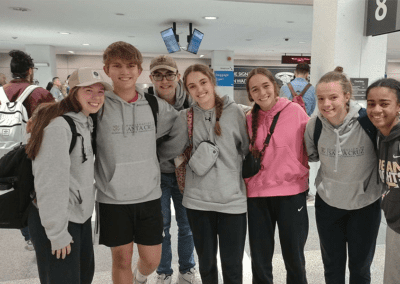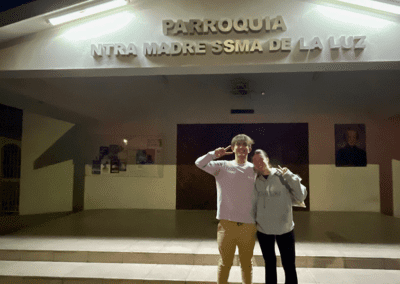Student Essay Contest: “Learning to Give All For God” by Archbishop Hoban’s Mateo DeCola
Blogs | Education | Immersions | Latin America | Spes Unica
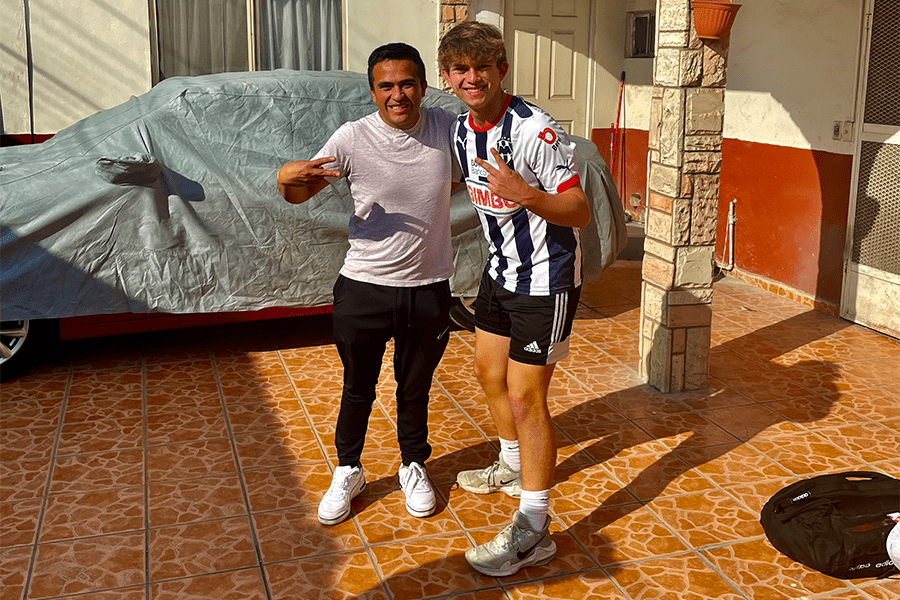
We are pleased to present to you this tied third-place essay from the 2024 Holy Cross Missions Student Essay Contest, which invited students to reflect on the ways an encounter at an international Holy Cross ministry drew them “to completeness” as understood by the person of Jesus Christ.
Mateo, a junior at Archbishop Hoban High School in Akron, Ohio, participated in his school’s immersion to La Luz Parish in 2024. Drawing on his family’s history of immigration, Mateo composed an essay that captures his zeal for Christ, his Christ-like compassion for those on the peripheries, and his love for the Congregation of Holy Cross.
———
“Learning to Give All for God”
What does it mean to live as a disciple of Christ? Catholics have a common saying: “What would Jesus do?” It is instilled inside of them from an early age, serving as a reminder to live like Jesus. The final judgment passage in Matthew 25 illuminates that when people provide aid to those less fortunate, that is what will ultimately save them. However, in the small town of Nuevo León, Monterrey, Mexico, within the quaint walls of the Holy Cross parish of Nuestra Madre Santísima de La Luz, I found that it was the poorest of people who guided me to a feeling of completeness, that is, towards the model of living that Christ gave us.
— — —
My name is Mateo DeCola. I am the son of a Uruguayan immigrant who came to this country with 500 dollars in cash, two suitcases, and a dream of starting a family. He met my mother in Los Angeles, and after a few years, they moved to her hometown of Akron, Ohio. Fifteen years later I found myself following my older sister’s footsteps, attending the Holy Cross high school Archbishop Hoban. My father taught my sister and me Spanish as children but insisted we both take it in school. “You never know how useful another language is until you hear the stories of different people,” he would repeat as I complained about the endless conjugation practice worksheets. If only I knew how right he would be.
My sophomore year brought me to CCP Spanish 101, taught by Señora Amy Zeller. We quickly grew a connection: I would be the only one to raise my hand during the 8:00 am class, and she would always sneak me an extra dulce—candy—at the end of class. In mid-October she presented me with an opportunity to go on Hoban’s first service/immersion trip since the dreadful Covid-19 pandemic. The experience was typically only offered to juniors and seniors, yet, there was much apprehension from the students and their families. Many had heard horror stories about drug cartels and poverty that was happening in Monterrey. I took the information packet home to my parents, and after a little conversation, it was agreed that my older sister, Sofia, and I would both attend. In addition, my father would go as well, bringing with him 50+ years of life experience and the ability to help translate for the group. In total, two teachers, my father, and seven students would travel across the country to our fellow Holy Cross parish in Monterrey, Mexico. We had no idea what to expect, we simply received all of God’s glory with open minds, arms, and hearts.
The trip was made official in late November, which meant that takeoff from Cleveland Hopkins Airport was in less than three months. The group met twice prior to departure; at one of these meetings, we video-chatted with our host Padre Pedro Carreño, C.S.C. He would help us with every detail of the trip, providing us with the experience of a lifetime. We would be able to work with the people of the community directly, from coloring pages with little kids to preparing care packages for the elderly. Padre Pedro opened his home to eleven strangers, welcoming us with the hospitality of Christ. He made sure all of our needs were met, including our indulgence in the Mexican street food which we had daily. But best of all, he brought me to the broken home of an older couple, where I was simply offered a bottle of Coca-Cola and pan dulce—sweet bread.
Padre Pedro and I were together walking through the community, bringing the Eucharist to people who were too ill to make it to Mass on Sundays. After offering the Sacrament, we would make conversation, because most of those people lived alone in their dimly lit houses. They had nobody to talk to, and we very well could have been one of the only times they would speak that day. All they had was their faith. My father noted that many of these people were living only to receive the body of Christ every week, and without that they would wither away. Yet, we were warmly welcomed, offered the most comfortable seat, and felt as though we could stay all day and night. That was the case inside the home of an older couple: a bedridden wife and a partially blind husband. Padre Pedro and I entered and immediately were hugged by the husband, and the wife sat up the best she could. After the brief service and blessings, we sat down to chat about life—a life that had been filled with tragedy, hardship, and a love of God that was unbreakable.
They lived well below the poverty line, and I still do not know how they could afford to keep the lights on. I was grateful that the Church was a support system for these people when their own government would not assist. But money did not matter in their eyes; we were guests sent by God to them, and for that reason alone we deserved the best they had to offer. As soon as we sat down, the gentleman offered Padre Pedro and me a beverage and snack, as a way of saying thank you. I glanced at Padre Pedro, and saw a light in his smile. He almost looked like he knew what was coming next.
This man stumbled out of his house, walked down the street to the corner store, and returned with two bottles of Coca-Cola and two sweet breads. Only two, only for Pedro and I. “I hear you enjoy Coca-Cola, Mateo,” he said to me as he searched for a bottle opener. He was correct; my favorite beverage is the cane sugar-infused drink encapsulated inside a glass bottle. In that moment, I realized what it meant to give your all to the poorest of Jesus’s disciples. To many, it is a few pesos, but to them it is a fortune. This little couple, though struggling with poverty, showed me what it meant to give all that you have for God, the same way Jesus sacrificed himself for all of us. I was the thirsty one at that moment, and they gave me a drink, a drink that quenched my thirst for meaning beyond what I could see in this world.
Looking back, I believe divine providence brought me to the living room of that elderly couple in Monterrey, Mexico. God knew that I was searching for purpose in my first-world life. He understood I was missing the point of what it meant to be “religious.” While there may be grand cathedrals scattered around the world, sometimes the holiest of places are the ones where the distractions of life cannot intrude. This hour spent in a a humble home in a foreign country made me feel complete spiritually. It showed me what it looked like to sacrifice all that you have for God, and in turn He will grant you everlasting life.
I returned to the group later that night, expressing the transformation that I had experienced earlier that day. Amidst my excitement, I saw my father and Padre Pedro talking, both smiling and observing our group. Then, it clicked; the feeling of completeness stems from offering whatever you can to those in need. My father took a week away from work to assist with the expedition, Padre Pedro devoted his life to being a role model for the small community, and the little couple gave me a road snack because they wanted me to feel at home. Now, it is my turn to give back.
— — —
The next time I visit Monterrey will be in February of 2025, which will be my last official trip to Monterrey through Archbishop Hoban—however, I already plan on returning with my friends when possible. On next year’s trip, I will be a senior leader given my Spanish skills coupled with the two years of prior experience. I hope that the group of students will bring with them an openness and zeal for all that we may encounter. While our American group may not look the same as the locals, we are all brothers and sisters in Christ, and for that reason alone we are all blessed. When the sign up for that trip opens, I will ask Señora Amy Zeller to pass along this essay, as well as my two journals kept from the previous years, to illuminate the life-changing experiences towards completeness that can be experienced in the small town of Nuevo León, Monterrey, Mexico. Because there sits a Holy Cross parish, La Luz, which affectionately translates to “the light.” The small church lit the path for me to walk like a true disciple of Christ. In the end, I write this essay mainly to reflect and give recognition to the beautiful community, but if I were blessed with any monetary prize I have only one thought in mind, buying a glass bottle of Coca-Cola and a pan dulce for somebody else whose path has not been lit up yet. Gracias a Dios.
Support Holy Cross in Mexico: Give Today!
Published: January 21, 2025
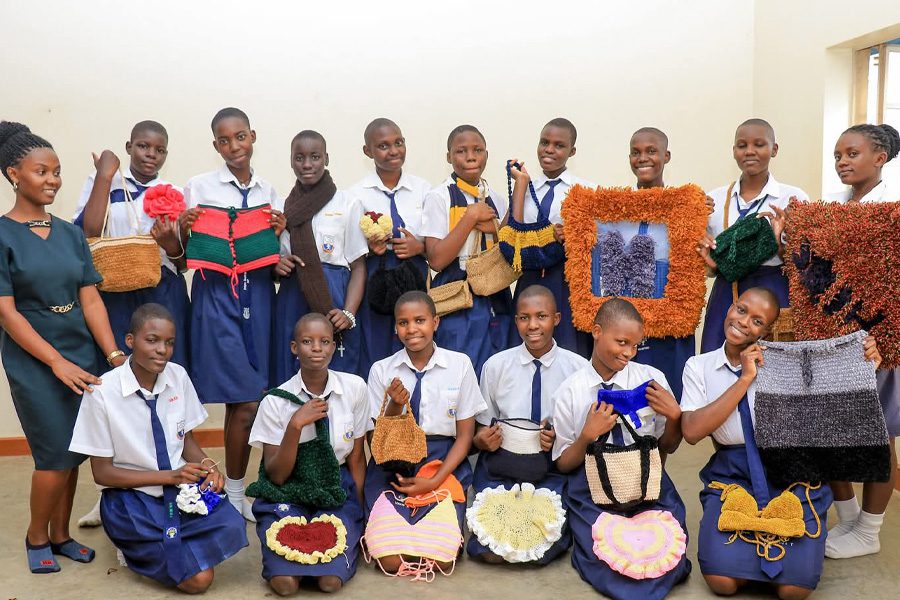
Mary Jane DeLaney Endowment Fund 2025-26 Projects Preview
Every year, the Holy Cross Mission Center (HCMC) facilitates the Mary Jane DeLaney Endowment Fund grant cycle, which supports vulnerable women and...
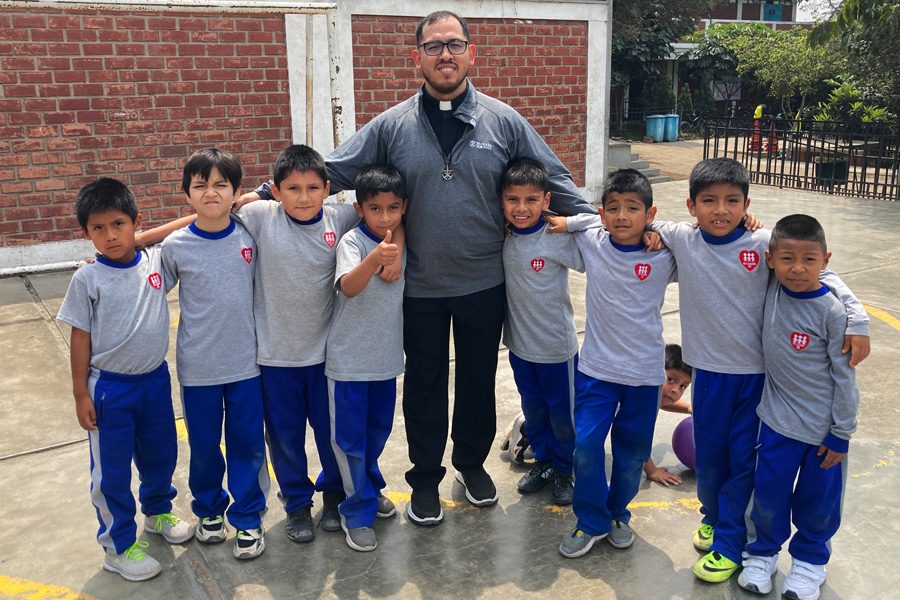
International Apostolic, Justice & Peace 2025-26 Project Preview
The Holy Cross Mission Center (HCMC) recently invited Holy Cross religious from six different countries to apply for the annual International...
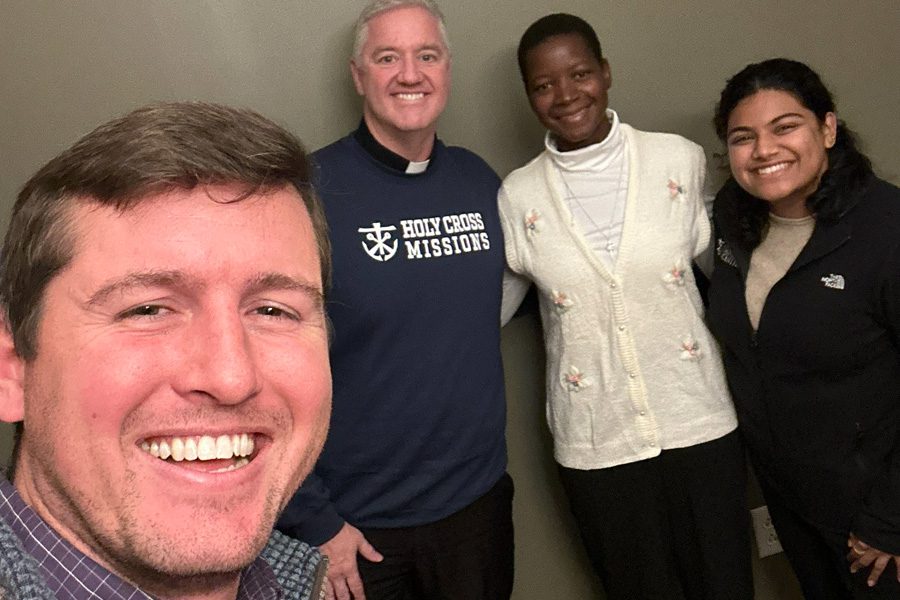
Community Outreach Updates: November 2025
The Holy Cross Mission Center (HCMC) is grateful to take this opportunity to share how we have engaged with the community in the past month. Baraka...

